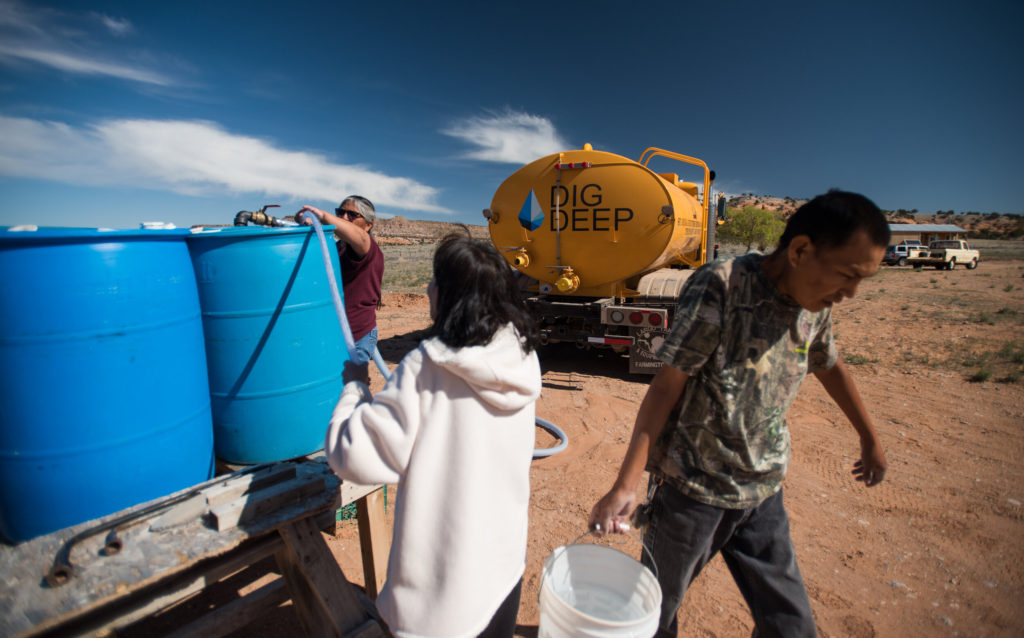Boeing has announced a $1.3 million commitment to support Indigenous communities and STEM education for its youth across the US.
The announcement coincides with National Native American Heritage Month, observed during the month of November in the US. Boeing’s investment package to support Indigenous communities includes $300,000 in grants for Southwest Tribal Nations to improve access to clean water; bridge the digital divide in education; and provide better natural disaster response and preparation. It also includes $140,000 in grants for the Pacific Northwest; and a $60,000 grant in Oklahoma supporting STEM education programmes for students. An additional $840,000 will fund future projects for Native American and Indigenous communities to be detailed at a later date, confirmed Boeing.
“We recognise the toll on Native American and Indigenous communities from centuries of injustice, and we take seriously our role in supporting education and development in these communities,” stated Marc Allen, Boeing’s Chief Strategy Officer, Senior Vice President of Strategy and Corporate Development and enterprise executive sponsor of the Boeing Native American Network. “Today’s exciting announcement continues our longstanding efforts to lift up equity and opportunity in the communities where our employees live and work.”

ADVANCING RACIAL EQUITY
The new investments build on the company’s previously announced multi-year commitment to combat racism and advance racial equity and social justice at all levels. “It is inspiring to see Boeing continue to make its commitment to help improve the lives of those they serve,” commented Gwendena Lee-Gatewood, Chairwoman of the White Mountain Apache Tribe. “Boeing funds will help our children obtain assistance and empower young people across the Apache Nation with new leadership skills, new education partnerships, and health and technology. As children, we were all taught to treasure what the Earth gives us and to make sure that we leave it for the next generation. By helping improve educational needs of our children, we are helping empower them. This is truly magnificent.”
“Since time immemorial, Indigenous people have used science and technology to survive, to adapt, to create and to thrive,” added Puget Sound Educational Service District NAEP Manager Jason LaFontaine (Turtle Mountain Chippewa). “The focus of the Boeing STEM grant is to show Native youth how their cultural ways of knowing and their future can be seen through the lens of science, technology, engineering and math.”
The funds will also improve access to clean water. “The lack of clean running water on the Navajo Nation was dire before the pandemic hit,” noted Emma Robbins, Diné (Navajo) Activist and Director of the Navajo Water Project. “Over 30% of families on the Navajo Nation are without water access. Covid-19 exacerbated an existing problem. Boeing’s generous donation will allow us to address this crisis head on and accelerate our efforts to expand water access across the Navajo Nation.”

TRAINING NATIVE AMERICAN YOUTH
In the past two years, Boeing has invested close to $660,000 in organisations supporting Native American and other Indigenous communities, bringing the company’s global support for these populations to $2 million. In addition, the company’s employee-led Boeing Native American Network Business Resource Group promotes awareness for the richness and diversity of Native American and Indigenous cultures. It also encourages STEM careers for Native American youth and provides training opportunities for Native Americans to develop their professional and personal skills.
“Having been raised on the Rosebud Reservation in South Dakota, I learned at a young age about determination, overcoming obstacles and personal accountability. I know first-hand how important resources are to this community,” stated Kathleen Jolivette, Boeing Vice President of Attack Helicopter Programmes and Senior Mesa, Arizona, Site Executive. “And just as I am proud to be a Native American, I too am proud to work for a company that is not only continuing to address racial equity by funding immediate needs, but also looking for ways to partner with Indigenous communities for long-term solutions.”

Jolivette recently scooped the American Indian Science and Engineering Society (AISES) Professional Awards this year. She actively promotes diversity and inclusion and finds opportunities to serve others specifically in support of the Native American community. She also volunteers for the Native American Heritage Association, the National Alliance on Mental Illness, AISES and the Boeing Native American Network.
FUND RECIPIENTS
Non-profits that will receive immediate grant funding from Boeing include:
- Partnership with native Americans: A $125,000 investment will support tribal self-sufficiency by providing training and equipment to Native American tribes that will help increase effectiveness in preparing for and responding to natural disasters.
- DigDeep: A $100,000 investment will fund the “Navajo Water Project,” which provides residents on the Navajo Nation access to water, job training and equipment. This Indigenous-led, locally staffed programme develops wells to pump, treat and store clean water, delivered by trucks to off-grid home water systems.
- Puget Sound Educational Service District: A $75,000 investment will provide funding for the Red Road Project, a culturally infused STEM curriculum led by Native American educators that will reach 400 K-12 Native American students in four Pierce County, Washington, school districts. The Puyallup and Muckleshoot Tribes also support this programme.
- Oklahoma State University Foundation: A $60,000 investment will fund a paid summer internship programme for high school juniors and seniors. The programme will offer Native American students the opportunity to work alongside faculty and undergraduate engineering students at the university’s Unmanned Systems Research Institute.
- American Indian Science and Engineering Society (AISES): A $50,000 investment will support the Together Towards Tomorrow (T3) Fund. It provides one-time scholarships of $500 to 1,000 Indigenous students enrolled in an accredited US college/university who have been impacted by the Covid-19 pandemic.
- Mentor Washington: A $45,000 investment will support the Native American Career Connect STEM programme, a partnership with the Nisqually Tribe that increases Native American students’ engagement and success in school through group mentorship and career exploration.
- Forte Apache Heritage Foundation: A $25,000 investment will provide immediate technology access to White Mountain Apache tribal students in Arizona currently learning from home without computers or internet access.
- Washington MESA: In partnership with the Red Road project, this $20,000 investment will fund the Washington MESA (Math, Engineering, Science Achievement) programme, which delivers hands-on STEM exploration opportunities to 160 Native American middle school students in Pierce County, Washington.




































